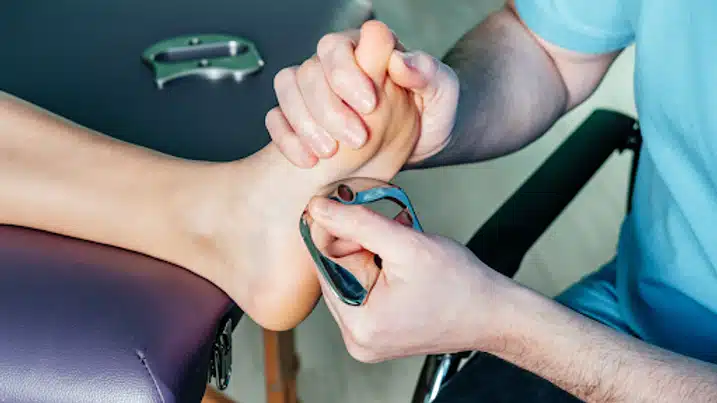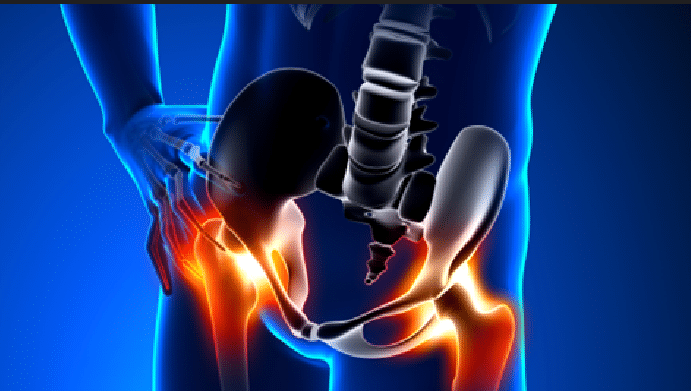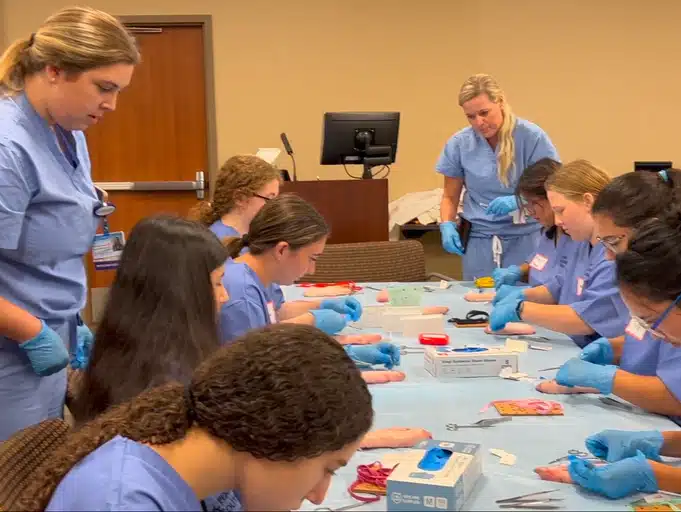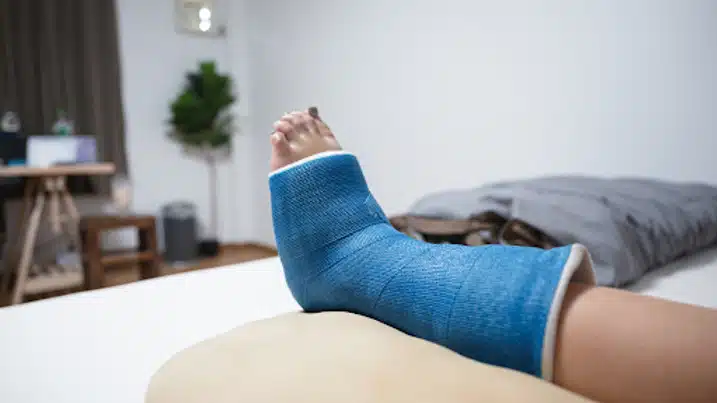Plantar Fasciitis is a common foot condition that develops when repeated strain is put on the plantar fascia, the band of tissue that supports the arch of the foot. As a result, many people with plantar fasciitis experience pain in their heel or a stab-like ache every time they take a step. It most commonly occurs in young male athletes (particularly runners!) and middle-aged obese women, as well as people with jobs that require them to be on their feet for most of the day (think cashiers, police officers, etc.).
If you’re experiencing pain due to Plantar Fasciitis, there are several things you can do to treat it. Here are a few of the different treatment options you can do to decrease your pain and symptoms:
Medication. Visit a doctor who can prescribe you nonsteroidal anti-inflammatory drugs (NSAIDs). These can help you seriously reduce some pain and inflammation in your plantar fascia. Depending on your medical history and severity of symptoms, your doctor may prescribe you multiple daily doses over a shorter period.
Steroids. If the NSAIDs aren’t working as you’ve hoped, a steroid injection might do the trick. A cortisone injection into the most painful part of your foot will reduce pain and decrease inflammation of the plantar fascia over a prolonged period. Injections are an excellent course of treatment if your case of plantar fasciitis is unusually severe.
Shock Wave Therapy. Through sound waves, shock wave therapy literally “shocks” your plantar fascia, stimulating blood flow in your foot and helping your foot tissue heal even faster. Shock wave therapy will also stun your nerves, decreasing a substantial amount of pain! This isn’t the most common source of treatment, so consult with your doctor to see if this is the right course of therapy for you.
Physical Therapy. Of course, physical therapy is a great way to help you heal and manage your pain. Your physical therapist will recommend stretching and strengthening exercises to help you heal. This will improve your flexibility and mobility in your plantar fascia while strengthening related muscle groups such as your ankle, Achilles tendon, and lower leg muscles. A physical therapist may recommend other treatments, such as massages, contrast baths, ice application, foot tape, orthotics, or night splints.
Florida Joint Care has provided quality healthcare to the Trinity, Florida area for over ten years. Our mission is to provide exceptional orthopedic care to our community efficiently and compassionately. We provide various services, so you can always get the care you need. Visit our website to learn more, or call us at 727-372-6637 to schedule an appointment today.
Sources:
https://www.mayoclinic.org/diseases-conditions/plantar-fasciitis/diagnosis-treatment/drc-20354851
https://www.aafp.org/pubs/afp/issues/2001/0201/p467.html
https://my.clevelandclinic.org/health/diseases/14709-plantar-fasciitis
https://www.webmd.com/fitness-exercise/what-can-i-do-plantar-fasciitis#1
https://www.choosept.com/guide/physical-therapy-guide-plantar-fasciitis







